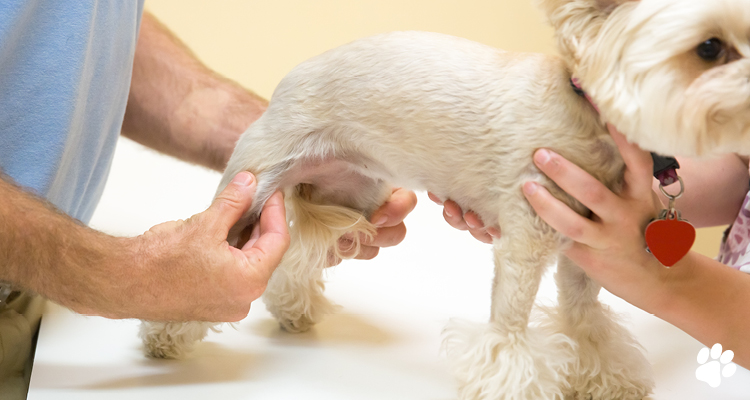Dog knee replacement
If your dog is in a lot of pain when they walk and is experiencing reduced limb function in one of its knees, then it might be time to consider a knee replacement. Similar to the surgery offered to humans, a total knee replacement can improve your pooch’s quality of life. To learn more about the procedure, speak to our expert team at Normanhurst Vet.
What’s involved in a dog knee replacement?
A total knee replacement is performed by cutting out the entirety of the diseased knee joint and replacing it with a metal and polyethene structure. This procedure is more effective for medium or large dogs, like German Shepherds or Newfoundlands, that haven’t responded well to medical management. However, custom joints are available for smaller pooches, like West Highland Terriers or Whippets.
Like any operation, the procedure does come with some potential complications (infection, ligament damage), but rest assured we’ll do all we can to guarantee the replacement goes smoothly. Once the operation is complete and they’ve had time to heal, your dog will be much happier in themselves.
Why might my dog need knee replacement therapy?<?h2>
Dogs might need a knee replacement for various reasons, but the main ones are:
- If your dog is suffering from severe arthritis in one of their joints, and this has led to extensive damage.
- If your dog has broken their knee and it can’t be fixed through other means.
- If your dog’s knee pain can’t be managed using medication.
If one of these applies to your pooch, then get in contact with us as soon as possible so we can arrange a consultation. It’s also worth noting that there are some scenarios where this operation won’t be possible for your dog, including poor overall health and infection in the joint.
How long will it take for my dog to recover from knee replacement surgery?
It can take up to 12 weeks for your dog to fully recover from their surgery. During this time, you will have to follow a minimal exercise regime with them to allow the soft tissues and the joint to heal. You also need to make sure they aren’t jumping up at people or climbing onto any surfaces.
After the first check-up at two weeks, short walks on the lead are usually allowed as long as the vet is happy with their progress. Usually, we also ask you to bring your dog in for further check-ups at 6 and 12 weeks. If necessary, we may also recommend physiotherapy and hydrotherapy.
Learn more today
If you want to enquire about knee replacement surgery for your dog, speak to a member of our friendly team today. You can call us a 02 9489 6000 or send an email to reception@normanhurstvet.com.au.
